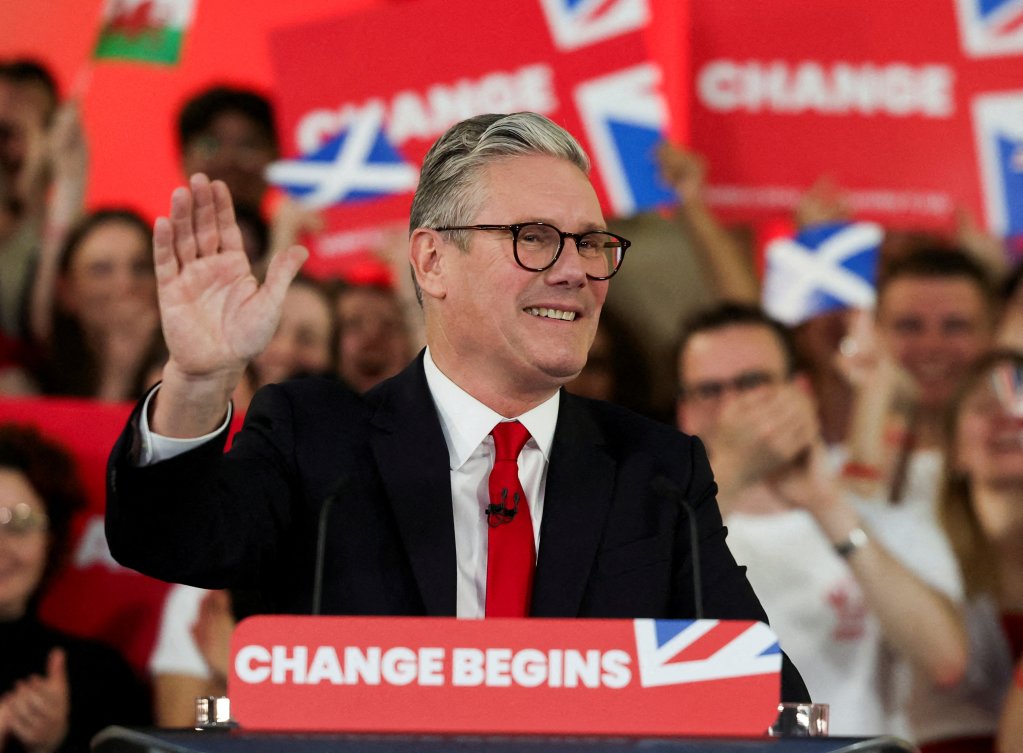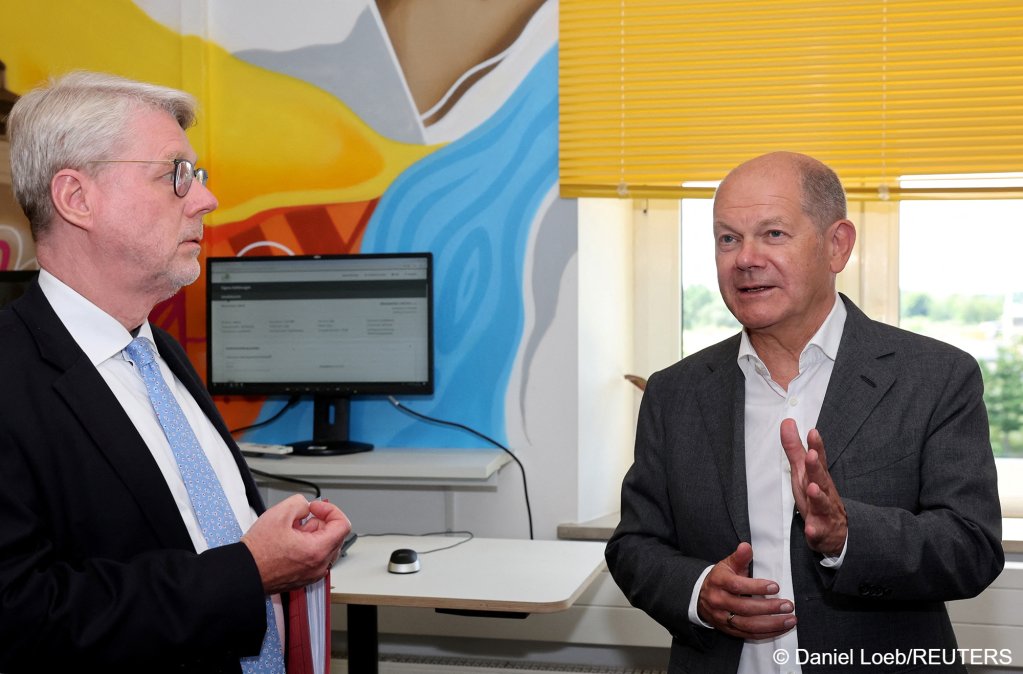Following the collapse of the UK's so-called Rwanda plan to send asylum seekers to be processed and rehoused in the African nation, the debate on using third countries to outsource asylum procedures continues across Europe -- including in Germany.
Germany's Federal Ministry of the Interior said that the government would continue to examine various models of dealing with migration, not overtly ruling out a cooperation with a third country similar to the model that had been envisaged by the UK under Conservative rule until recently.
Upon taking office last week, newly elected British Prime Minister Keir Starmer announced that under his leadership, the UK will no longer pursue this intended cooperation with Rwanda.
Also read: Can Labour repair the United Kingdom’s fragmented asylum system?
A spokesperson for Germany's Ministry of the Interior meanwhile told the EPD news agency that pursuing a plan similar to the erstwhile UK deal with Rwanda would be unlikely. He stressed there were too many legal hurdles to enact any asylum agreement like this.
Chief among these issues is a key piece of EU law, which states that it is illegal to send asylum seekers to a country to which they have no connection at all.
The spokesperson also added that in practical terms, the costs of relocating asylum procedures would be many times higher than the costs of accommodating asylum seekers in Germany.

Opposition smells fresh opportunities
Despite these official statements, the Christian Democrats (CDU/CSU) -- which currently are the biggest opposition party in the Bundestag, Germany's lower house of parliament -- continue not only to propose such third-country solutions repeatedly, but are now feeling further encouraged by the UK decision to abort the Rwanda plan.
Alexander Throm, spokesperson for domestic policy for the CDU/CSU parliamentary group in the Bundestag, said the party wanted to "stick to the project and make use of the groundwork done by our British partners."
In particular, Throm framed London's departure from the plan as an opportunity for Germany: "There are now all the more capacities available for us in Rwanda," he told EPD.
"Being situated in continental Europe, we are much more affected by illegal migration. Germany and the EU therefore need the opportunity to carry out asylum procedures outside of Europe," said Throm.
Read also: Germany to examine asylum processing in third countries
Speeding up Dublin returns
The federal government and the opposition meanwhile continue to clash on immigration issues across the board.
However, Chancellor Olaf Scholz has started to make some concessions to the opposition in recent months, pledging among other things to speed up migration procedures.
During a visit to the Federal Office for Migration (BAMF), he said that he wanted to beef up political efforts for faster processing times, including an overall improvement of the return of asylum seekers to other EU countries as part of the so-called Dublin procedure.
According to the so-called Dublin Regulation, the EU country first entered by a prospective asylum seeker should ordinarily also be the one in charge of examining and processing that asylum claim. If an asylum seeker lodges a claim in a second EU country, he is to be sent back to the first one.
However, some countries, including Italy, are currently not accepting any or only a small number of asylum seekers that they would be obliged to accept under the Dublin Agreement, as they feel overwhelmed with the ongoing rate of new arrivals daily.

Artificial intelligence in asylum procedures
Scholz meanwhile also said that technological tools needed to be used to speed up asylum procedures. He said that artificial intelligence (AI) should also play a role in helping BAMF in the near future.
Scholz said that AI could help "ensure that we can make routine decisions quickly but with a high level of quality," while also stressing that the Federal Office had to maintain sufficient staff levels as well.
He added that the use of AI was already being "prepared in many places" to this end.
"We must ensure that we are state of the art," the Chancellor stressed.
Individual decisions needed
However, it is unclear whether speed truly is of the essence. BAMF President Hans-Eckhard Sommer said that the average processing time for all initial asylum applications is currently down 4.6 months -- which is the fastest rate in almost a decade.
The employees working at the authority always processed the applications "individually and tailored to the people," he added, stressing the importance of bespoke attention to each case.
The number of asylum applications in Germany meanwhile has fallen in the past year. From January to June 2024, 121,000 applications for asylum were made across the country — marking a fall of almost 20% compared to the same period last year.
Most of the applicants came from Syria, Afghanistan and Turkey, according to BAMF data.
Also read: Austria expresses wish to adopt UK-like Rwanda policy, backed by 14 EU members
with EPD, dpa
